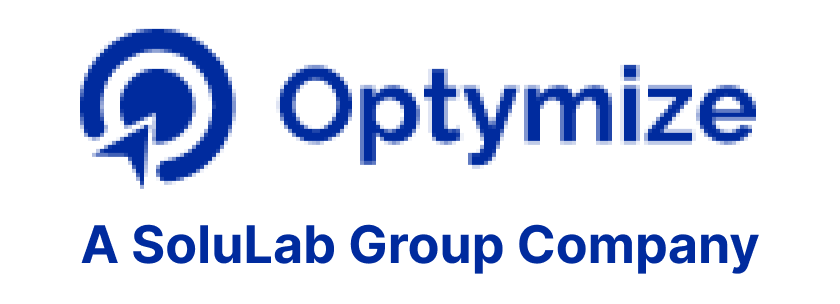In a world of a demanding workforce, companies try to recruit the best candidates to maximize their business objectives and fill their resource gaps. No wonder, the talent acquisition department of a company implements new strategies to recruit candidates who are skilled and experienced. Active recruitment has been in the recruitment process for more than a century, but nowadays companies have started realizing that some candidates have the potential to elevate their companies’ standards by introducing efficient solutions. As a result, they began to passively recruit candidates from different parts of the world, giving rise to the “active vs passive job seekers” debate. This article will clarify major key areas regarding active and passive job seekers, their differences and their advantages.
Types of Job Seekers
Yes, there are two types of job seekers who pursue their careers differently concerning their goals and ambitions.
Two types of job seekers
- 1. Active job seekers
- 2. Passive job seekers
As they are opposite to each other, people around the world are criticizing the term active vs passive job seekers as both of them have advantages and disadvantages.
Active vs Passive Job Seekers: Major differences
What are Active Job Seekers
- The job seekers who apply to a particular position in a company whenever they start recruiting via their job portal or by advertisement on other platforms are known as active job seekers.
- We can consider the active job seekers as a fish and companies as fishermen with their fishing rods, like a fishing process when a company posts a job on their job portal or any other job platform its similar to a “bait” and active job seekers on the other hand as a fish looks at that opportunity which can fulfill their career needs, offer an impressive salary to fill their stomach.
- There are millions of active job seekers and most of them are freshers as they do not have any prior work experience in the field they want to pursue their careers.
What are Passive Job Seekers
- Passive job seekers are those who don’t actively look for work and a company has to find and onboard them to fill their resource gap.
- We can apply the similar principle of fishing here but hold on, passive job seekers do not seek a job that is easily right, to make it align with the fishing concept we have to look at things differently. While fishing, not every fisherman uses a rod and a baited hook to hunt a fish, some use a spear to hunt down these arrogant creatures. Companies use a similar strategy for passive job seekers. Companies search for these people on different platforms, and after finding them they convince a passive job seeker to work for them which might involve offering them a great salary, impressive incentives, better work-life balance and so on.
- Unlike active job seekers, passive job seekers tend to be more skilled and experienced. For this reason, companies crave for such people as they have skills which can help them to elevate their business standards.
Active vs Passive Job Seeker: Tips for Efficient Hiring Process
When it comes to the recruitment process companies often make different strategies to hire a certain portion of candidates, most of them follow the good old hiring process where a candidate’s resume is fetched afterwards they allow candidates to take technical tests and finally different interviews. Although this is a traditional method of hiring candidates some feel this is an outdated approach as it exhausts candidates, hence some companies try different methodologies to make the active and passive hiring process less complex. It’s important to understand the recruitment process to clarify the concepts such as active vs passive job seekers and passive vs active recruitment, how they play their roles, and how a company manages both.
Passive Recruitment
The word passive recruitment puts companies on the edge as they know how hard it can get, to hire a passive job seeker. They have to keep in mind that they are the ones who are willing to onboard a candidate to their team for their benefit. Some points must be taken into consideration when you hire passive job seekers such as-
1. Cut Down Exhausting Recruitment Procedures
- We all have been there where we applied for some company and their recruitment process was exhausting enough to reject that opportunity. Passive job seekers are less likely to want to go through multiple rounds of screening, technical tests and frustrating online submissions. Not to forget some companies often introduce unnecessary steps which can elongate the recruitment process like suggesting candidates upload resumes and afterwards fill all their information in a form. Active job seekers might agree with these terms but passive job seekers may pass on and look for better opportunities. Hence, easing out the recruitment process for passive job seekers may be the first thing a company must focus on.
2. Have A Slight Change in Approach
- Before you approach a passive job seeker you must understand that he doesn’t need your company, your company needs him. You have to focus on sparking his interest in your company and the role you are offering. By doing so you can make a firm grip on attracting his interest in the role as well as company culture.
3. Improve Hiring Speed
- Active and passive hiring can get tedious as most companies take too long to hire a candidate. This is ok when you are hiring active job seekers as they can wait for a certain period. But in the case of passive job seekers, it’s not the same, once you get a passive job seeker on your radar you have to speed up the process else you might end up losing a skilled candidate. If you ask why? Well, let’s consider points like why did you pick that candidate? Because of his skills and experience or any technical expertise he has that you liked? Whatever may be the case you have to understand if that candidate has the expertise because of which you want him to be a part of your team, then you can’t overlook the fact that your competitors might also want him to improve their business standards, this is why if you don’t speed up the process your competitors might hire him and you might not get the best candidate.
5. Keep A Good Offer Ready
- Today’s young talent doesn’t care about the job but rather the work culture and work-life balance. A good salary isn’t the only factor to convince passive job seekers to onboard a company, time has changed since the events of pandemics as it introduced remote work culture and increased incentives. The passive job seekers would likely do remote work as it provides flexibility, increased productivity and peace of mind. Remote work increases productivity and many companies have become aware of this fact. Also, the future of work culture is more aligned with remote work as it offers benefits to companies and not to forget that they will be getting a pool of talented passive job seekers.
Active Recruitment
Active recruitment is what we call a traditional recruitment process which has been in the corporate world for almost a century. Active recruitment is more straightforward as the active job seekers want what companies can provide such as a great salary and other incentives. But there will be a time when an active job seeker will have the expertise you need and you might want them as part of your company. However, before you hire active job seekers do consider the following points-
1. Develop A Smooth Recruitment Procedure
- Similar to passive recruitment it’s important to develop a less complex recruitment process as candidates tend to get exhausted and may say no to the opportunity if it gets stretched. Companies can implement different recruitment methodologies such as keeping the process crystal clear and providing all the necessary information about the recruitment process as one can get stuck and may need assistance.
2. Avoid Including Unnecessary Steps
- Some companies often include unnecessary steps in the recruitment process such as firstly they ask active candidates to upload their resumes and afterwards filling in the required information. It may seem like a repetitive process to active candidates which may lead them to criticize the company’s work culture and hiring process. Fixing this issue may help companies look more proficient with hiring.
3. Reply Earliest
- This is a common issue as many companies reply late to candidates regarding their candidature and other recruitment procedures. This is crucial as talented candidates might get overlooked and a company might end up recruiting bad hirings. Replying earliest can ensure candidates that the company follows its rules and regulations on time.
Advantages of Active Job Seekers
- To build a strong criticism on active vs passive job seekers and passive vs active recruitment let’s find out the advantages of active job seekers.
- Most active job seekers apply for different positions at a company which shows that they are eager to join the company. An active job seeker always searches for a company in which he can fit which shows his enthusiasm to look for the best company.
- The active job-seekers remain in the company till they feel challenged, and the moment when they feel that they are not challenged enough or they don’t get any complex projects they may try to seek other great opportunities giving the current organization an idea about what they should focus on.
- Similarly to the above point when active job seekers decide to join your company it shows that they are moving on from their current position for great opportunities at your company which gives satisfaction to companies that their company is on the right track.
- Active job seekers actively try to find new opportunities that can elevate their careers. If an active job seeker joins your company then it demonstrates that they are proactive and ambitious to work with, companies can use this ambitious workforce to increase their benefits.
Advantages of Passive Job Seekers
- Passive job seekers are skilled and experienced. That’s why when a company hires them they rest assured about their work. This again means a company doesn’t require much filtration while selecting other passive job seekers.
- Passive job seekers don’t actively apply for jobs, and that doesn’t mean that they are not interested in working for your company. A great salary and effective work-life balance can motivate them to switch to your company, using this method companies can attract passive job seekers with great talent.
- Another advantage of passive job seekers is that they are happy and are well settled with their current jobs, if a company reaches out to them offering a great package then they are less likely to struggle with company policies and their terms as they are well experienced working for other companies.
Why Passive Candidates are Better
In the debate of active vs passive job seekers, people around the world are eager to know why passive candidates are preferred over active candidates. There are a lot of reasons why passive candidates are better than active candidates, such as-
- The companies are well aware of the fact that passive candidates are likely to be the best fit to handle their workforce with great potential as they have worked and handled previous roles in other companies achieving this major success.
- Passive candidates are best suitable for highly skilled positions. They work on critical roles and perform critical tasks, bad hiring in that position can cause dire consequences hence passive candidates play an important role in the tech industry.
- Another reason passive candidates are better is that there is a rare talent that can work on crucial roles which require crucial task implementation and this talent is rare to find even active candidates who lack these skills, hence passive candidates have gained popularity and they have become a necessity for tech companies.
Conclusion
The debate of active vs passive job seekers seems never-ending as companies intensify on hiring passive job seekers giving rise to criticism as to which one of them is the best. Active job seekers tend to follow the traditional way of recruitment while passive job seekers only consider working for a company that offers a good package and enhanced work-life balance. If we put active vs passive job seekers to a conclusion we may not get a total winner as both have advantages and disadvantages. Companies also tend to battle over active vs passive job seekers as they require more candidates and passive candidates are hard to find, for this reason, many companies still prefer active candidates but they can’t overlook passive candidates as they introduce some effective solutions to their business.







